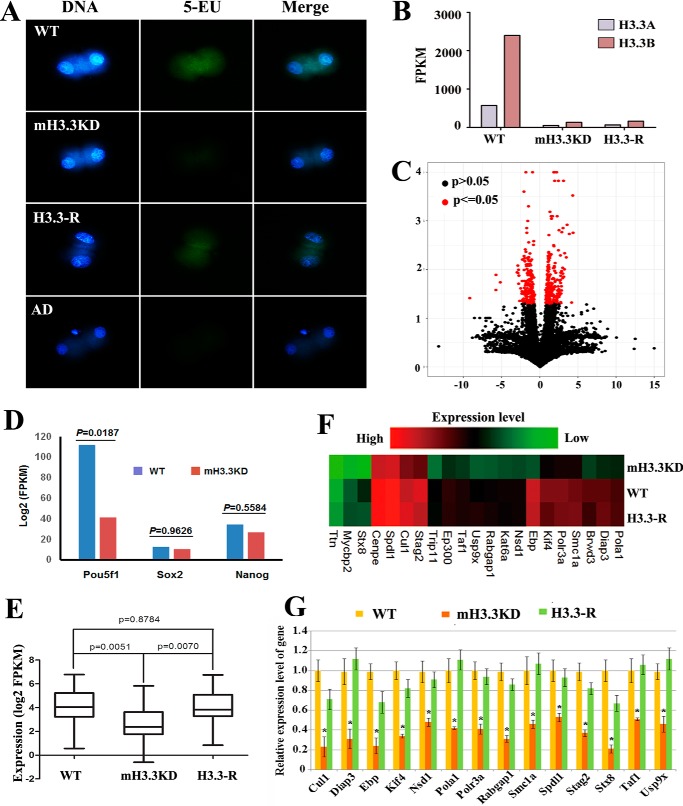Figure 4.
Maternal H3.3 facilitates activation of paternal genome during embryogenesis. A, de novo transcription of the paternal genome in androgenetic haploid embryos at the two-cell stage. De novo transcription of the paternal genome labeled with 5-EU was detected in the WT embryos but was hardly detectable in the mH3.3KD embryos. De novo transcription is rescued in H3.3-addback embryos. Embryos treated with actinomycin D (AD) were used as a negative control. B, efficient knockdown of H3f3a and H3f3b transcripts in mH3.3KD and H3.3-addback (H3.3-R) embryos revealed by RNA-seq. C, Pou5f1 (Oct4) is significantly down-regulated in mH3.3KD embryos 50 h after fertilization (p < 0.05); the expression levels of Nanog and Sox2 are only slightly decreased (p > 0.05). D, RNA-seq analysis of differentially expressed genes between mH3.3KD and WT embryos. E, bar plot of average expression levels of the 21 genes down-regulated in mH3.3KD but rescued by H3.3-addback (H3.3-R). F, heat map of the expression levels of the 21 genes. G, qRT-PCR analysis confirmed the down-regulation of the 14 genes in mH3.3KD embryos and up-regulation in H3.3-addback (H3.3-R) embryos (t test; *, p < 0.01). Error bars represent S.D.

